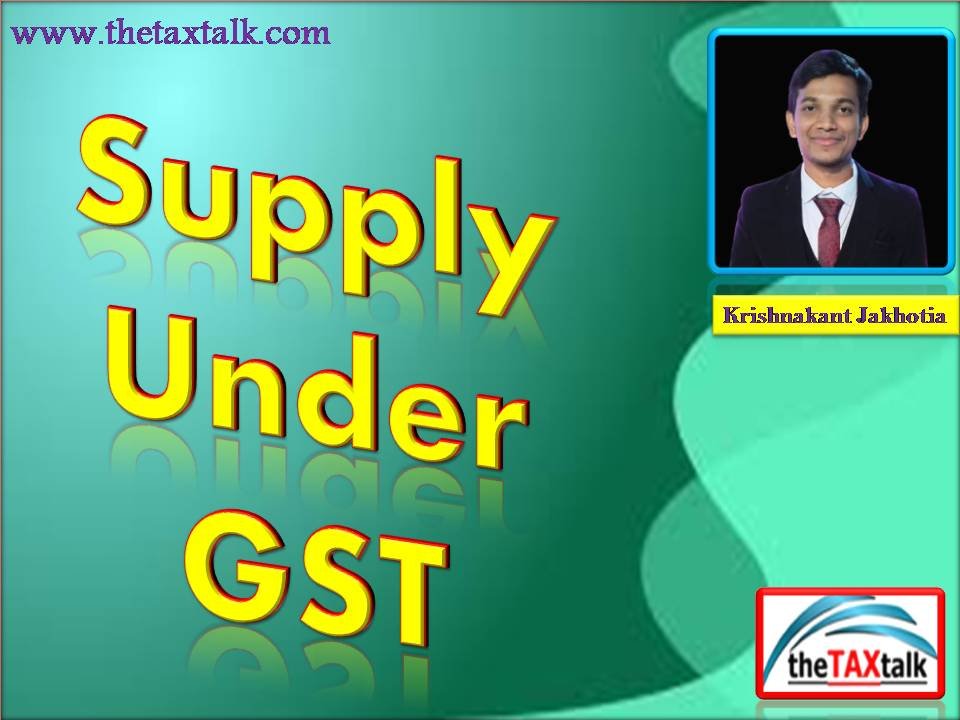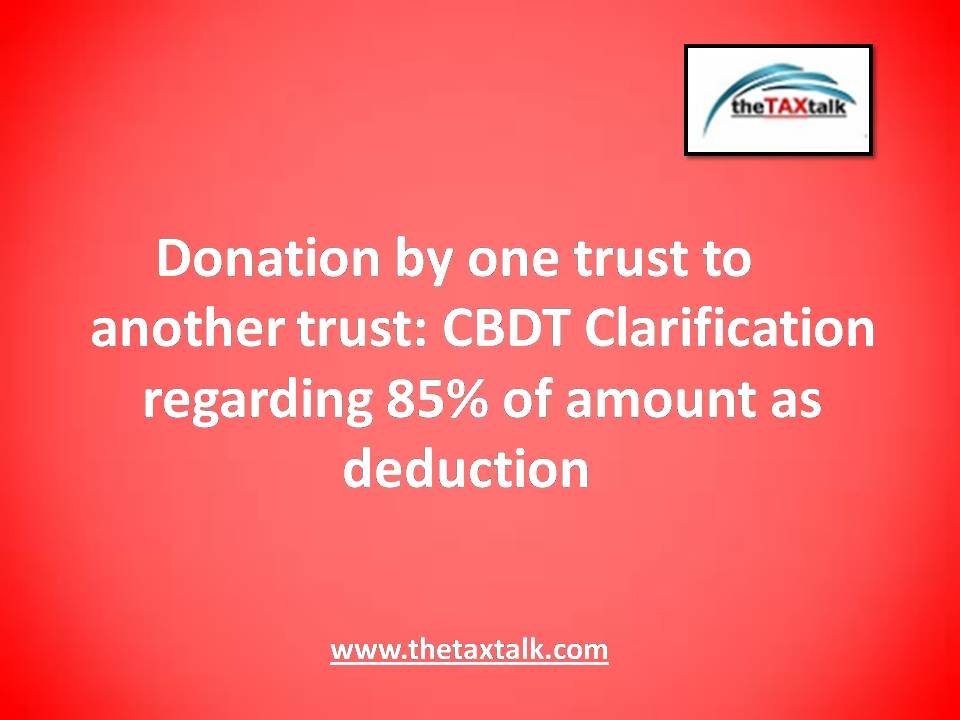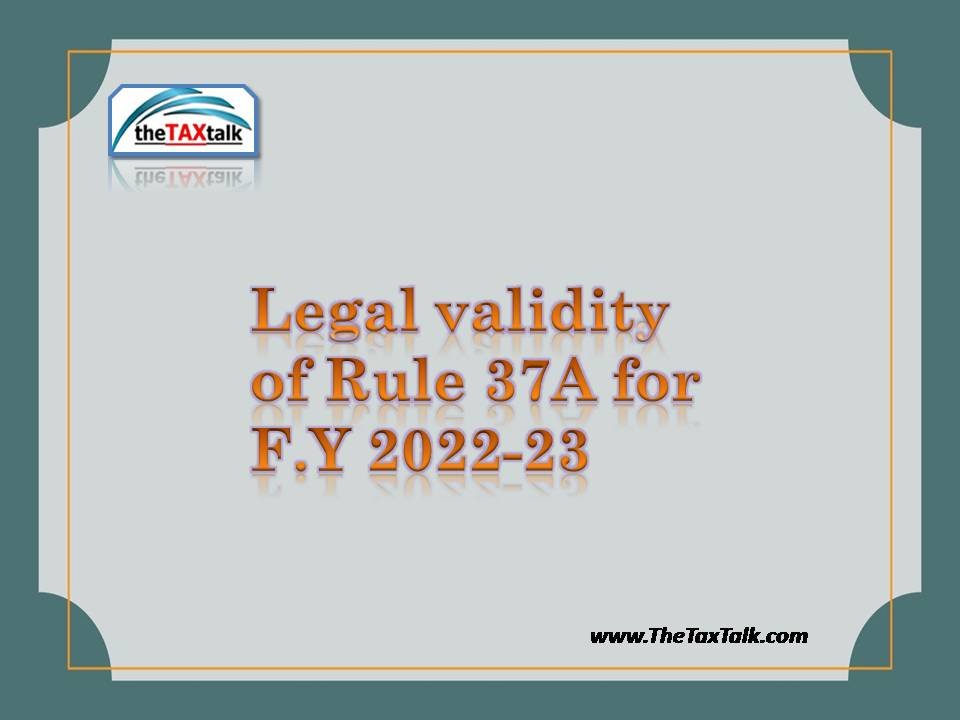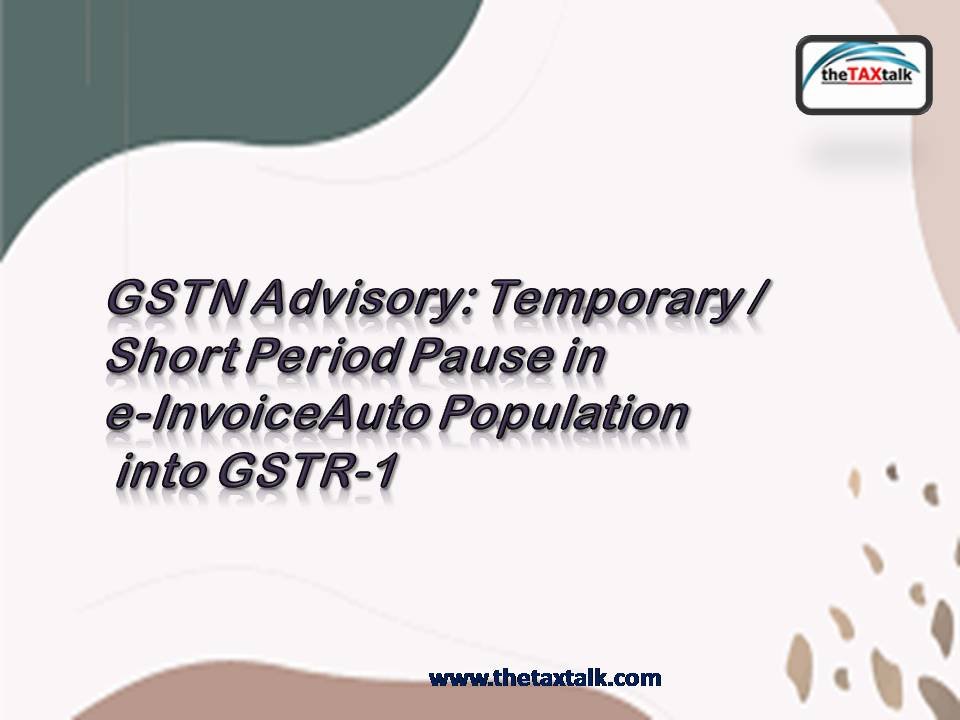![]()
Supply Under GST
The taxable event in GST is supply of goods or services or both. Various taxable events like manufacture, sale, rendering of service, purchase, entry into a territory of State etc. have been done away with in favour of just one taxable event i.e. supply.The constitution defines “goods and services tax” as any tax on supply of goods, or services or both except taxes on the supply of the alcoholic liquor for human consumption.
The term ‘supply’ has been defined under section 7 of CGST Act, 2017.
Section 7(1) says Supply Includes
1. all forms of supply of goods or services or both such as sale, transfer, barter, exchange, license, rental, lease or disposal made or agreed to be made for a consideration by a person in the course or furtherance of business;
2. import of services for a consideration whether or not in the course or furtherance of business;
3. the activities specified in Schedule I made or agreed to be made without a consideration
Four activities are mentioned in Schedule I which are as follows:
1. Permanent transfer or disposal of business assets where input tax credit has been availed on such assets.
2. Supply of goods or services or both between related persons or between distinct persons, when made in the course or furtherance of business.
Provided that gifts not exceeding 50,000 rupees in value in a financial year by an employer to an employee shall not be treated as supply of goods or services or both.
3. Supply of goods by principal to his agent or by agent to principal
4. Import of services by a taxable person from a related person or from any of his other establishments outside India, in the course or furtherance of business
Parameters of supply
The term, “supply” has been inclusively defined in the Act. The meaning and scope of supply under GST can be understood in terms of following parameters:
1. Supply of goods or services or both(Supply of anything other than goods or services does not attract GST).
2. Supply should be made for a consideration except in case of transactions specified in Schedule 1. That means activities done free of charge does not constitute supply and hence does not attract GST. Further, deposit paid are not treated as consideration. They are treated as consideration only when they are adjusted against amount due from recipient.
3. Supply should be made in the course or furtherance of business except in case of import of service for a consideration.
4. Supply should be a taxable supply.
Goods as well as services have been defined in the GST Law. “Goods” has been defined as every kind of movable property other than money and securities but includes actionable claim, growing crops, grass and things attached to or forming part of the land which are agreed to be severed before supply or under a contract of supply.
“Services” means anything other than goods, money and securities but includes activities relating to the use of money or its conversion by cash or by any other mode, from one form, currency or denomination, to another form, currency or denomination for which a separate consideration is charged.
The expression “services” includes facilitating or arranging transactions in securities. Thus, securities are excluded from the definition of goods as well as that of services. Money is also excluded from the definition of goods as well as services.However, activities relating to use of money or its conversion by cash or by any other mode, from one form, currency or denomination, to another form, currency or denomination for which a separate consideration is charged are included in services.
Activities or Transactions which Shall be Treated Neither as a Supply of Goods NOR a Supply of Services
Schedule III to the CGST Act, 2017 spells out activities which shall be treated as neither supply of goods nor supply of services. In other words, these activities are outside the scope of GST. Following are such activities:
1. Services by an employee to the employer in the course of or in relation to his employment;
2. Services by any court (District Court, High Court and Supreme Court) or Tribunal established under any law for the time being in force;
3. (a) the functions performed by the Members of Parliament, Member of State Legislatures, members of Panchayats, Members of Municipalities and Members of other local authorities;
(b) the duties performed by any person who holds any post in pursuance of the provisions of the Constitution in that capacity; or
(c) the duties performed by any person as a Chairperson or a Member or a Director in a body established by the Central Government or a State Government or local authority and who is not deemed as an employee before the commencement of this clause.
4. Services of funeral, burial, crematorium or mortuary including transportation of the deceased.
5. Sale of land and, sale of building where the entire consideration has been received after completion certificate is issued or after its first occupation.
6. Actionable claims, other than lottery, betting and gambling. (Actionable claims are included in the definition of goods, However, schedule III provides that actionable claims other than lottery, betting and gambling shall be neither goods nor services.)
7. Supply of goods from a place in the non-taxable territory to another place in the non-taxable territory without such goods entering into India.
8. (a) Supply of warehoused goods (warehoused goods as defined in the Customs Act) to any person before clearance for home consumption;
(b) Supply of goods by the consignee to any other person, by endorsement of documents of title to the goods, after the goods have been dispatched from the port of original located outside India but before clearance for home consumption.
From,
Krishnakant Jakhotia
Mobile No :- 9422507911
Email Id :- taxtalknew@gmail.com




